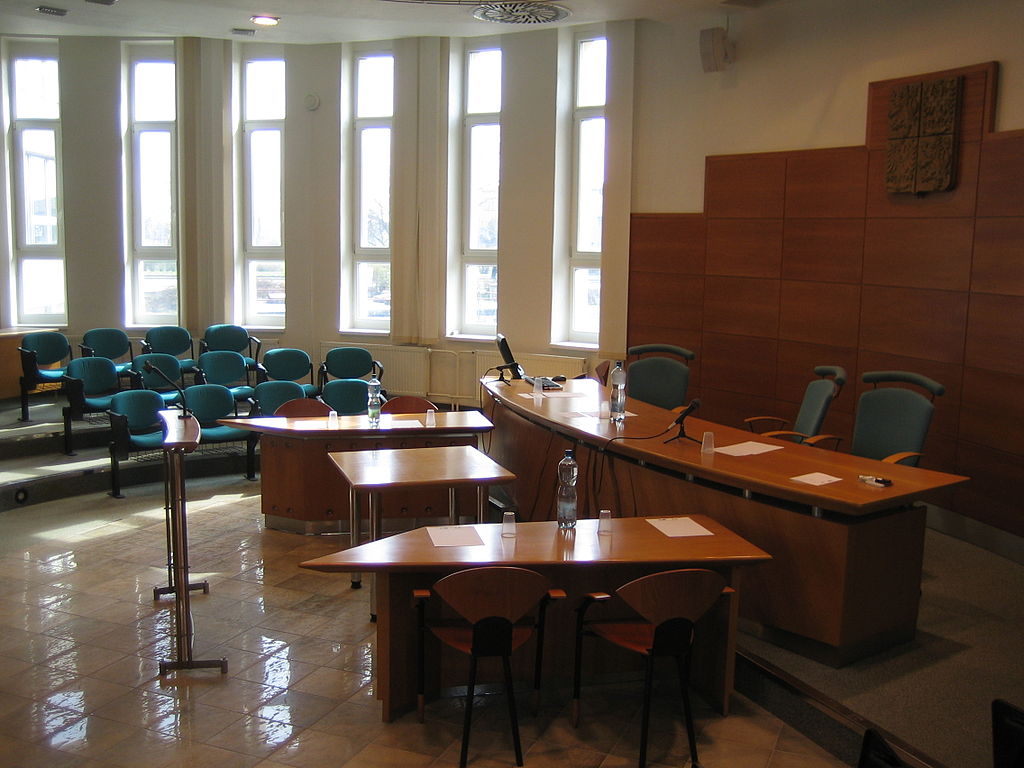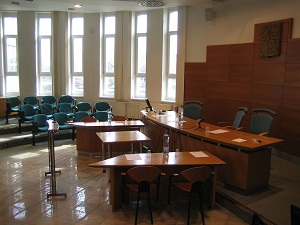
I want to write this piece partially because when a law student who passed on her experiences to me, it triggered my own experiences which led me to really thinking about the importance of sharing this in a more public form.
“We felt judged differently”
I met with a WOC law student a few days ago and began by asking her with how things have been recently. She mentioned they were okay, and I had asked about her moot as I had seen them robed up for it not too long ago.
She mentioned right away, without even talking about the content of the case question or positive experiences, that her own experiences and ones shared with other WOC participants in different sessions were that the judges appeared to be extremely tough on them. How in content they were presenting the same material as their white colleagues/classmates but in the feedback they got grilled harder and praised less. While it was just a small snapshot, it cannot be by more than chance that two separate mooters in two different sessions connected on the same point as an immediate feedback following the moot.
This experience is parallel to the experience of WOC in many other professional fields. I harken back to a quote by U.S. Democratic Rep Rashida Tlaib last
The hardest part of serving in Congress as a WOC & as a “first” is how people hear you differently. No matter how much we take on the hate & stay true to who we are through our experiences, our voices are shushed and reduced. We aren’t perfect, but neither is this institution.
— Rashida Tlaib (@RashidaTlaib) February 11, 2019
We’re seeing it in Canada too. As I have been tweeting, the differential treatment (and personalized attacks) against Dr. Theresa Tam (Canada’s Chief Medical Officer, a racialized Women of Colour) as compared to Dr. Bonnie Henry (BC’s Chief Medical Officer). I’ve written in the past as well on how many of my WOC colleagues had experiences of clients ‘going over them’ to contact male Firm Partners to complain, something racialized men deal with much less frequently.
Connecting with those experiences
Today I would consider myself a solicitigator but increasing involved in litigation. I openly admit that my writing is much better than my oral advocacy, and in terms of presenting in front of a courtroom there’s much for me to learn and improve on. I am still grateful for how far I have come. During PLTC, I was so nervous with public speaking and sharing my voice publicly that I literally stumbled sharing my own name. I remember I almost failed a mock assignment because I became so anxious and had my mind go blank, creating disconnect between my written notes and oral arguments.
I’ve always been a decent speechwriter. When I write prepared statements they are often thoughtful/well-crafted. Oral advocacy via litigation, where you are having a ‘conversation with a judge is more difficult. I grew up in very hierarchical settings where you never looked an elder directly in the face – where your father’s word was to be followed, your teacher’s were held up as perfect, and you, as your nobody self, was to follow not question these relationships. You grew up very conflict adverse – often resorting to silence or swallowing discontent and disagreement. Expressing disagreement publically usually led to a raised-voice argument and emotions that got in the way of logical discourse. I know many others probably share this experience.
Going into law school, and specifically still having hopes of being someone who litigates, then becomes a crucial space for learning and challenging oneself. Unfortunately, both the socratic method (less commonly employed) or through larger lectures where the same voices would dominate (usually white, privileged voices) created a lack of an environment to test out that litigative voice or engage in those types of important (outloud conversations). I only remember being able to share more freely through small groups and our incredible Tort Professor Dr. Jena McGill who would canvass each of us in ways that were non-intrusive and allowed for continued conversation.
What happens through these processes of silence (I can literally count on one hand the number of times I spoke up in lecture within three-years) is this internalized fear of speaking out. While stats do not exist (and in my opinion should be gathered), I believe for many racialized folk we get streamlined into solicitors work because we are not given the opportunity to work through our litigative fears/challenges/and culturally-specific barriers. To this date I hear from many upper year students who are preparing to graduate that they would love to pursue litigation but never made it to upper-year competitive moot teams, never properly received mentorship on becoming a litigator, and importantly never had space to practice and fail.
My Own Moot Experience
I only ever participated in one moot – a labour law moot. The topic was something to do with drug use within a unionized workplace, a sawmill if I remember correctly.
I remember that our first-round competitors (two-white men) presented their case. They were good – there wasn’t much depth of analysis but they were confident and clear. I don’t remember much in way of feedback presented to them.
I remember that after myself and my partner (a white woman colleague) presented, the entire feedback session was directed at me. A white woman judge criticized my decision to include my assessment of the societal impacts of the decision as a standalone argument as opposed to integrated into the points I was trying to make. I really did not have a defense – to this date in my cases I have done it both ways and found it effective.
While my teammate tried to console us (after our defeat) and I apologized for not ‘doing my best’ (even though I had spent hours preparing for both of us), I really felt afterwards abandoned by the process. I thought I had gone much more in-depth than the other mooters – really engaged with the facts. Ultimately, however, I was picked apart for one strategic decision and that was that. There was no positive reinforcement, no identification that there was some potential there.
Needless to say we did not advance and that was the end of my mooting experience. I never applied for competitive moots, and avoided moots like the plague.
Systemically, moots will indelibly continue to reflect the whiteness of litigation, the way it stands. This is important because moots are usually the starting point for those who want to pursue litigation, which is the gateway to those who eventually become tribunal members and judges. Having strong moot experiences also tends to increase one’s chances of obtaining clerkships and increasing one’s interaction with Professors and moot coaches (often lawyers) who can open career/litigation doors.
Recommendations
A great starting point of change is for the aforementioned first-year moots, which I think all law schools should make mandatory.
For first-year moot especially, there needs to be a greater emphasis on selecting a diversity of guest judges (especially early round judges).
Having different perspectives in the room (even if they are non-subject matter experts – i.e. even if they are quieter solicitors) can change the dynamic in the room. I think judges should be encouraged as well to disagree with one another and themselves engage in positive conflict as opposed to be a consensual sounding board. That dialogue, showing disagreement, can liberate those who are themselves finding themselves in an uncomfortable process. For example, had I see women of colour receive unbalanced criticism from a white judge, I might engage that judge directly as another judge. I might bring in some of those different viewpoints and perspectives. I might even show additional patience or chime in to validate rather than rush to criticize.
For more competitive moots, it starts from the selection committee. Those who arrange competitive moots at schools tend to be usually social-facing white professors. If charged with choosing teams, there is certainly inherent bias towards similarly situated persons who reflect past teams of success and likely not those who were like me who struggled [the whole trauma behind being picked for teams – I’ll save for later posts].
Perhaps, schools can also consider putting in B-teams (second teams) as well that don’t represent the next four best mooters but four individuals who indicated their interest in litigation and who may not have had access to past experiences. Rather than going in with an intention to win, these teams can enter with a non-competitive lens of improving oral advocacy skills as a primary goal.
Furthermore, I would encourage affinity groups such as Federation of Asian Canadian Lawyers and South Asian Bar Association to follow the steps of the Black Law Students Association and the Julius Alexander Isaac Diversity Moot and arrange more experiences. Aim these moots not only at diversity issues but also of Charter cases, public law cases, and other areas. Host workshops, feedback sessions, and other opportunities for students to learn, fail, and challenge themselves. Turn Moot not just to a competitive law school sport, but also a recreational activity for all levels. While one may not turn to litigation right away, it could spark students to consider it or at least add it to their arsenal of tools moving forward into articling and practice.
Conclusion – Creating Safer Spaces for Students to Litigate
The fact that students are returning from these first-year moots, which are meant to help inspire litigation pathways and expose students to oral advocacy, with feelings that they may not want to do this again are very troubling. When there is a lack of diversity on the judiciary, we should begin to look at the root causes – including how students are being exposed to litigation.
Ultimately, my recommendation is that we start with first-year moots by having more diverse (including non-subjective matter expert) judges balance out the room and give voice and support to those students who may not come from oral advocacy/vocal backgrounds. Second, we consider competitive moot teams beyond just A-teams and actively into putting together non-competitive B-teams for those who want to improve their skills. Third, affinity groups (through their advocacy committees, etc.) can put together more moots directed at this target audience.
I hope that with some of these challenges we can start empowering BIPOC lawyers to pursue litigation careers beyond their time at law school.

